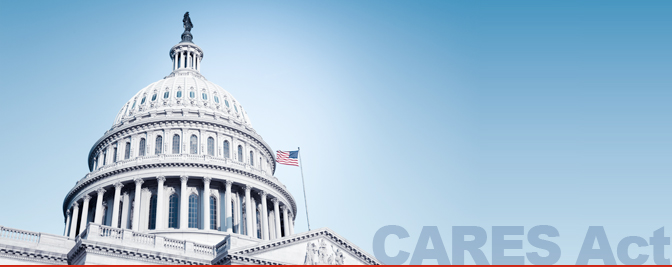
Expert Questions on IRS Web Portal for Non-Filers Who Want to Receive Economic Impact Payments

Published 2020-04-15
As part of the CARES Act, the federal government is issuing up to $1,200 to certain individuals to help keep money in people’s pockets in the wake of the economic shutdown precipitated by the coronavirus pandemic. Congress appointed the Internal Revenue Service to distribute the money and directed the agency to pay eligible persons who filed tax returns for either 2018 or 2019. Because many otherwise eligible people do not file a tax return, the agency devised a mechanism for those individuals to get their money too. It’s a webpage called the “Non-Filers: Enter Payment Info Here” portal. Here are answers to some key questions about it.
Who has to use this new web portal to get their money?
The portal is only for individuals who neither received social security retirement or disability benefits, nor filed a tax return for either 2018 or 2019.
If you filed a tax return for 2018 or 2019 and received a refund by direct deposit, you do not have to do anything. The government has begun making payments via direct deposit to individuals in that group.
Also, if you did not file a tax return for 2018 or 2019, but received social security retirement or disability benefits, you also will be receiving your payment automatically into the account the government uses to deposit those benefits.
What if I have to file a tax return for 2019, but have not done so?
The portal is not a substitute for individuals who have to file a tax return for 2019. You should file your tax return as soon as possible. The IRS will use the information on that return to determine how much to pay you, if anything. The web portal is designed for individuals who don’t have to file a return for 2019. You won’t have to file a return for 2019 if you are an individual who had no more than $12,200 in gross income. For married couples filing a joint return, you don’t have to file a return if you have no more than $24,400 in gross income.
What if I don’t have to file a tax return and I don’t have a banking account?
The new web portal accommodates all non-filers, both those who have a bank account and those who don’t. If you provide your account information, you will receive your check by direct deposit. If you don’t, you will receive your check in the mail, assuming you qualify.
What if I filed a return for 2018 or 2019, but I did not receive a refund by direct deposit?
If you did not receive a refund by direct deposit, the IRS will still pay you if you qualify. However, it will take longer for you to receive your money. The IRS says it hopes to release an app later in April that will permit individuals to provide the agency with bank account information so that their money can be sent to them by direct deposit. If the agency does not know your bank account information – either from your tax return or the app – it will send you your check through the mail, assuming you qualify.
What if I received a refund in the form of a debit card issued by a tax preparation service, like H&R Block?
If you received your refund through a debit card issued by a tax preparation service, the IRS does not have your personal banking information. Therefore, you are not included in the group of individuals who is currently receiving payments by direct deposit. The app that the IRS is currently working on will offer you the opportunity to provide the agency with the kind of information it will need to send you your money by direct deposit. So, stay tuned for the release of that app. Once it is out, the sooner you provide the information, the better. If you don’t have a banking account, the app won’t be of any help to you. You will receive your money by check in the mail.
How does the portal work?
First, you visit the portal webpage here. That webpage provides basic information about the program to help you understand whether you have to use the portal or not. The first question on this fact sheet addresses that question. The webpage also lists the pieces of information you will have to have ready to input once you start filling out the form. Once you have assembled that information, you can click on a link that will take you to a form to complete.
Richard Winchester is a Professor of Law at Seton Hall University School of Law and an expert in federal tax policy. His work is frequently cited in Congressional Reports on tax matters and he is also a national authority on small business and federal employment tax policy. Professor Winchester's biography and publications are available online.





